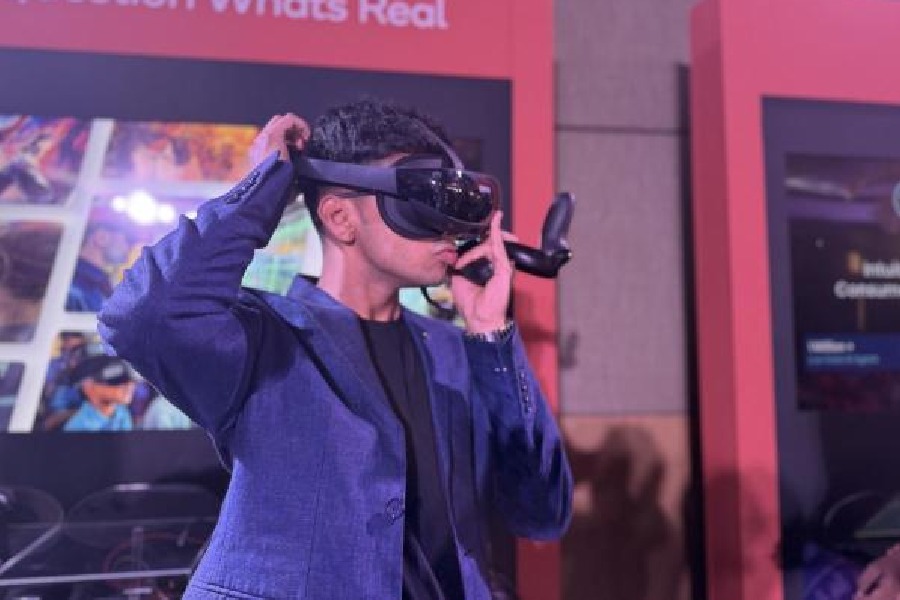The demand for artificial intelligence products continues to be on an upswing and Alphabet CEO Sundar Pichai said “we are leading at the frontier of AI” while announcing Google’s parent company’s second-quarter results. In between announcements of the company’s overall revenue growing 14 per cent year over year (Wall Street expected 10.9 per cent) and YouTube advertising revenue coming in at $9.8 billion, the CEO said smartphones will be “at the centre of experience for the next two to three years at least”.
Pichai first touched upon the Gemini 2.5 series and the Pro model, which was built with agentic capabilities (“it’s the direction where we are investing the most”). Then he said: “There’s definitely exciting progress, including the models we haven’t fully released yet.”
“When you look back on a 12-month basis, you end up making the models much more efficient for any given capability. So the forward-looking trajectory, I think, will really unlock these agentic experiences. We see the potential. We’re able to do them, but they’re a bit slow and costly and take time, and sometimes are brittle. But we’re making progress on all of that. And I think that’s what will really unlock. And I expect 2026 to be the year in which people kind of use agent experiences more broadly,” Pichai said.
As AI spurs a “whole new wave of innovation”, Alphabet is “super excited” in its “investment in glasses”. Pichai said: “I think it’ll be an exciting new emerging category.” With smart glasses becoming more popular, smartphones will begin to take a backseat.
Pichai’s forecast comes a few months after Eddy Cue, senior vice-president of services for Apple, appeared during testimony in a US Justice Department lawsuit against Alphabet. He spoke of the pace at which technology is changing and we may not be using the same devices in a few years. “You may not need an iPhone 10 years from now as crazy as it sounds,” he said. “The only way you truly have true competition is when you have technology shifts. Technology shifts create these opportunities. AI is a new technology shift, and it’s creating new opportunities for new entrants.”
Cue also said that large language models will continue to improve, giving users more reason to change their habits.
A few months ago, Google announced that it’ll be partnering with Samsung, Gentle Monster, and Warby Parker to create smart glasses. Shahram Izadi, VP & GM, XR, at Google, said: “We’re also advancing our partnership with Samsung to go beyond headsets and extend Android XR to glasses. Together, we’re creating a software and reference hardware platform that will enable the ecosystem to make great glasses. Developers will be able to start building for this platform later this year.”
The importance of smart glasses cannot be overlooked. Recently, at Snapdragon for India, Lenskart CEO Peyush Bansal was in the house. He spoke about the challenges and opportunities the new category offers.
“Glasses sit in a very sensitive place on the body — on your voice. So, the weight (of the device), looks and vision matter. How do we make them reach beyond just the content creators and influencers? Then there is the question of how we can make them affordable. It will depend on volume and the longer-term journey of smart glasses,” Bansal said. His company’s Phonic range of smart glasses is already popular.
He said when Apple launched the iPhone, there was a new form factor, and that is where the smartphone revolution started. “The bigger question is, how can smart glasses make one’s life better? Can it make an athlete run better? Can it make a chef cook better? Is it something meaningful in the lives of people?”
Another aspect challenging the smart glass industry is how it incorporates the prescription aspect at a down-to-earth price. “The biggest problem in front of us is how we make affordable lenses. In Southeast Asia, 70-80 per cent of people are myopic today, and myopia rates are growing,” said Bansal.
Meanwhile, Google is planning to showcase its next smartphones — Pixel devices — on August 20. Apple usually launches its new iPhones in early September.











